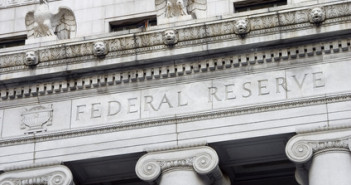The FOMC Meeting Minutes showed that many members who to ease soon. Although others objected and other ideas were raised (taking notes from the ECB and the BOE), the sentiment is generally dovish and the expectations for QE3 are now higher.
The result is a weaker dollar. EUR/USD breaks above 1.25 but stops at the next resistance line.
Update: Here is a deeper analysis of the minutes: QE3 in September is certainly NOT a done deal.
EUR/USD now trades at 1.2516, just under resistance at 1.2520. If this level is broken, 1.2587 is next. USD/JPY is falling, and now trades below 79.
This is the relevant segment from the minutes (emphasis mine):
Participants also exchanged views on the likely benefits and costs of a new large-scale asset purchase program. Many participants expected that such a program could provide additional support for the economic recovery both by putting downward pressure on longer-term interest rates and by contributing to easier financial conditions more broadly. In addition, some participants noted that a new program might boost business and consumer confidence and reinforce the Committee’s commitment to making sustained progress toward its mandated objectives. Participants also discussed the merits of purchases of Treasury securities relative to agency MBS. However, others questioned the possible efficacy of such a program under present circumstances, and a couple suggested that the effects on economic activity might be transitory. In reviewing the costs that such a program might entail, some participants expressed concerns about the effects of additional asset purchases on trading conditions in markets related to Treasury securities and agency MBS, but others agreed with the staff’s analysis showing substantial capacity for additional purchases without disrupting market functioning. Several worried that additional purchases might alter the process of normalizing the Federal Reserve’s balance sheet when the time came to begin removing accommodation. A few participants were concerned that an extended period of accommodation or an additional large-scale asset purchase program could increase the risks to financial stability or lead to a rise in longer-term inflation expectations. Many participants indicated that any new purchase program should be sufficiently flexible to allow adjustments, as needed, in response to economic developments or to changes in the Committee’s assessment of the efficacy and costs of the program.
As you can see, “many†are dovish, while only “othersâ€, “some†or “few†express concerns or doubts. This makes the dovish tone.



